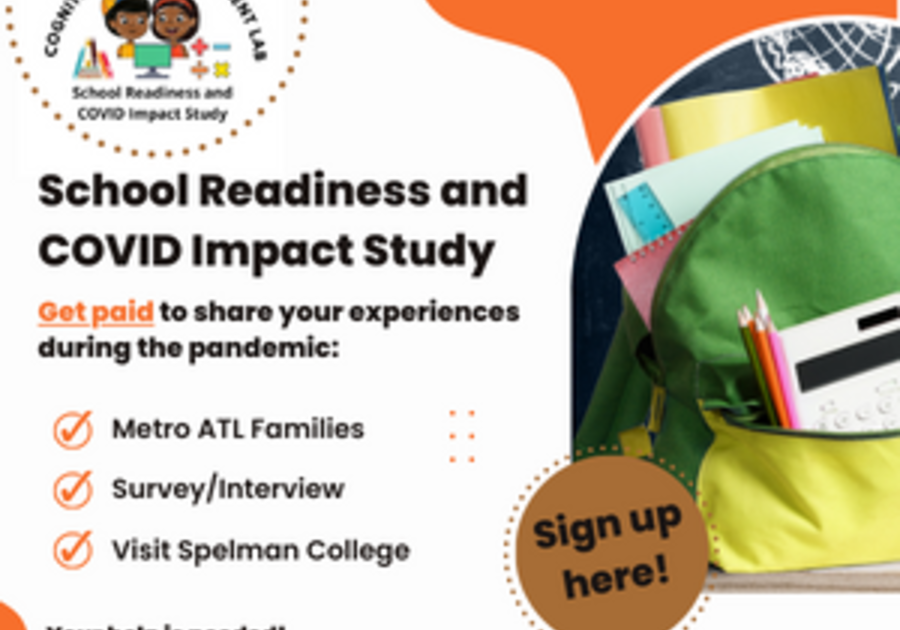Research in the Cognition and Temperament (CAT) Lab focuses on understanding factors that
help children succeed in school! The School Readiness and Covid Impact Study is one of the
current projects in the lab. The purpose of this study is to learn more about how children think,
remember, and solve problems in school. We also want to find out how COVID affected what
children did and learned in school. This is an important and exciting study that will help us learn
more about the impact of COVID on academic success in Black children.
As part of the School Readiness Study, we saw children when they were in pre-K and
Kindergarten. Those same children are now in middle school! We are continuing the study and
are currently recruiting new participants. Specifically, we invite families with children who
were in pre-K during 2014 and/or children who were in pre-K during Spring or Fall 2020 to
participate in this project.
PARTICIPATION
We need YOUR help! All new participating families will receive $35 at the completion of
the initial visit and will be invited back each year for the next 4 years. Your child will receive
a small toy for the visit as our thanks for your participation. Families must meet eligibility
requirements to participate.
ABOUT THE STUDY
If you decide to be a part of this exciting study, we will arrange a convenient time for you
and your child to visit the C.A.T. Lab on the Spelman campus or to conduct the visit
virtually. Your child will participate in several fun games with one of our research team
members. During this time, you will be helping us by answering some questions about you
and your family. The visit lasts about 2 hours.
CONTACT US
If you are interested in participating or have any questions about the study, please call or text
us at (404) 654-3370, e-mail us at childdev@spelman.edu or visit our website at www.catlab.weebly.com and sign up.
WE HOPE THAT YOU WILL PARTICIPATE!
This lab would not be possible without the support and funding of the National Institutes of
Health (NIH R01MD016085 and NIH R15HD077511), National Science Foundation (Award
#1832090), and Spelman College.
Click here to read more about what we have learned through our research.



